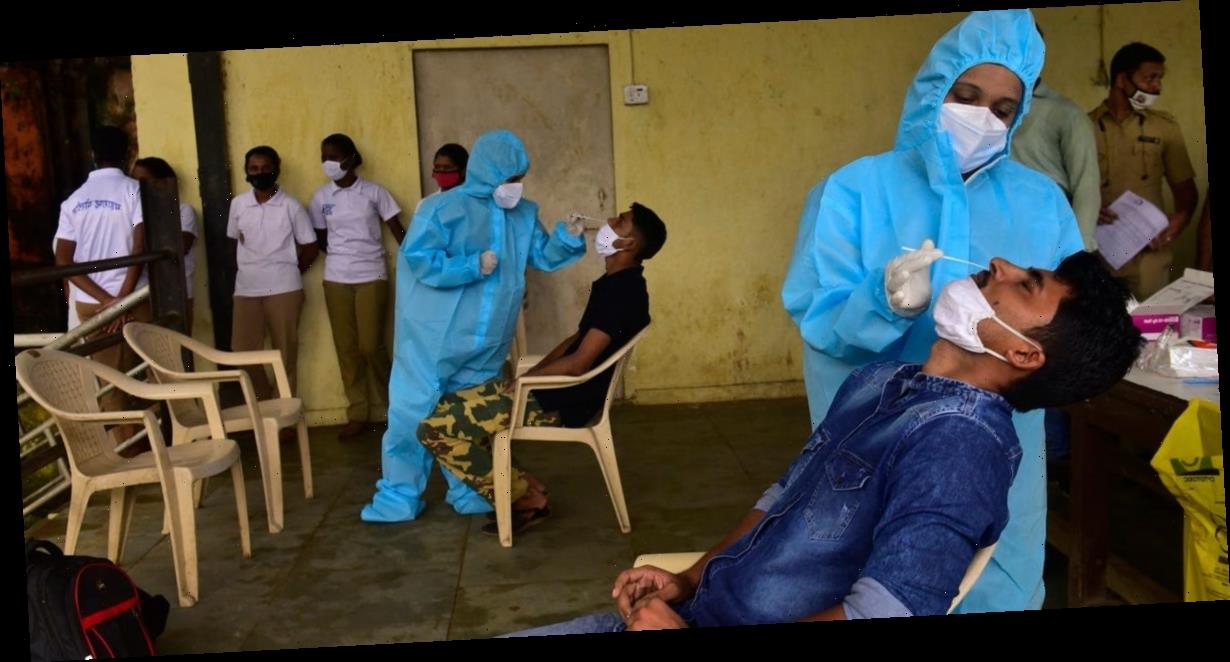- Worldwide coronavirus cases hit 40 million on Monday.
- Large parts of the world are seeing a surge in infections, and governments are scrambling to institute new lockdown measures.
- The US, India, and Brazil remain the hardest-hit countries with a combined 21 million cases.
- Visit Business Insider's homepage for more stories.
Global coronavirus cases reached 40 million on Monday, as much of the world heads into a new wave of the outbreak.
That figure is based on three different estimates from Reuters, Worldometer, and Johns Hopkins University. The real figure is likely much higher too, experts have said.
Monday's landmark figure marks a doubling of worldwide coronavirus cases since August 10, and comes three days after global cases rose by a record 400,000 in one day, according to Reuters.
The United States, India, and Brazil have the most cases in the world, with a combined nearly 21 million cases.
Europe appears to be emerging as a new epicenter of the virus. On Friday, the continent reported more daily cases than the US, India, and Brazil combined, according to Reuters.
European governments are also scrambling to impose new restrictions to protect hospitals from running out of beds.
Even Sweden, which took a unique approach at the beginning of the pandemic by not closing schools or businesses, is now working on imposing restrictions for the first time due to a concerning rise in deaths.
As of Friday, France had the highest seven-day average of cases in Europe, recording nearly 20,000 infections per day, according to Reuters.
In the UK, Prime Minister Boris Johnson unveiled a new three-tier lockdown system last week. Within days, the capital of London was put into the middle tier, with households no longer allowed to mix indoors. Liverpool is under the highest warning, with pubs and bars ordered to close.
Since the beginning of the pandemic, experts have warned that a second, more deadly wave, could begin in the fall when people started spending more time indoors, as happened during the 1918 flu pandemic.
Dr. Michael Osterholm, a top infectious-disease expert, told NBC News on Sunday that "the next six to 12 weeks are going to be the darkest of the entire pandemic."
One plus side is that the coronavirus appears to becoming less fatal as the pandemic wares on and doctors get better at treating the disease. In Spain, for example, which started to see a second wave begin in July, the highest daily death count has been 380 on September 30, much lower than the 961 daily record during the first wave on April 2.
The world may be beginning to see a light at the end of the tunnel though thanks to the rapid progress on a coronavirus vaccine. Multiple drug companies are in trials at the moment, with the two of the most promising being developed by Pfizer and Moderna. Pfizer said it's preparing to possibly send its vaccine to the FDA for approval by the end of November. Meanwhile, the UK officials said they are preparing for a vaccine to be ready shortly after Christmas.
Dispersing said vaccine will take some time though. Dr. Soumya Swaminathan, chief scientist at the World Health Organization, said last week that young people may have to wait until 2022 to receive a vaccine, so that more vulnerable people in the population can get it first.
Do you have a personal experience with the coronavirus you’d like to share? Or a tip on how your town or community is handling the pandemic? Please email [email protected] and tell us your story.
Get the latest coronavirus business & economic impact analysis from Business Insider Intelligence on how COVID-19 is affecting industries.
Source: Read Full Article
